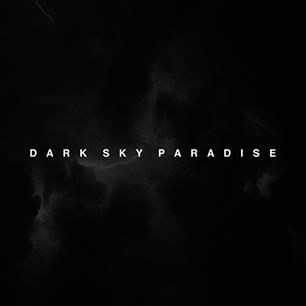By Martin Castro (Contributor) – Email
Print Edition: March 4, 2015
Big Sean has never come across as a conscientious rapper — his music is consistently full of materialism and ego — yet the way he presents himself has a certain charm, which definitely comes across Dark Sky Paradise, the Detroit rapper’s third album.
Intro track “Dark Sky (Skyscrapers)” is forgettable, and is almost completely overshadowed by the track that follows it. “Blessings,” which benefits with a verse from Drake, sees Big Sean departing from the sounds of 2012’s Hall of Fame to a moody, more airy soundscape. As the title suggests, this record — perhaps more so in terms of production than lyrical content — is Big Sean’s darkest project to date, and “Blessings” reflects that aesthetic. Sean’s flow is more impressive rhythmically than it is lyrically, but the track is quite enjoyable.
“All Your Fault” sees Big Sean and Kanye West collaborating over a track that isn’t bad, but also isn’t great, or even good. Kanye West’s verse is (as most of his recent work has been) petty and repetitive. Kanye’s flow sounds pretty much the same as it has on everything he’s put out these past couple of years; however, a pretty decent verse from Big Sean pulls the track together.
The following track is probably Big Sean’s most widely recognized song after “Control” by this point: “IDFWU,” which sees Big Sean take his bravado and confidence to an even more exorbitant height, is actually one of the best songs on the record. A consistent rhyme scheme, as well as a feature by the seasoned E-40, makes “IDFWU” one of the best tracks on this record. Big Sean himself is more focused here, and his verses are composed with a higher lyrical quality than most of his previous album.
“IDFWU” is followed by “Play No Games,” which proves to be one of the most forgettable tracks on the album, having a laid-back production that’s aesthetically neither here nor there. Big Sean delivers a verse that’s again filled with materialism and bravado, and at this point in the record, this sort of content loses any charm it might have once had for the listener at the beginning.
Sean delivers a succession of impressive verses on “Paradise,” one of the best-produced tracks on the record, opting for brooding bass lines and a minimalistic yet ominous contribution from a horn section. “I Know,” produced by DJ Mustard and featuring supporting vocals from Jhene Aiko, is a much more laid-back track than the rest of those on the album, and Jhene’s vocals are a welcome addition. The moodiness of the record is substituted for a much more upbeat and funky outro, reminiscent of Kanye West’s The College Dropout.
For all its content, Dark Sky Paradise proves, like much of the rapper’s early work, to house a few well-crafted gems amidst a mass of not-quite-subpar lyricism and production. This being said, it does show growth from Big Sean — growth which will hopefully continue.



